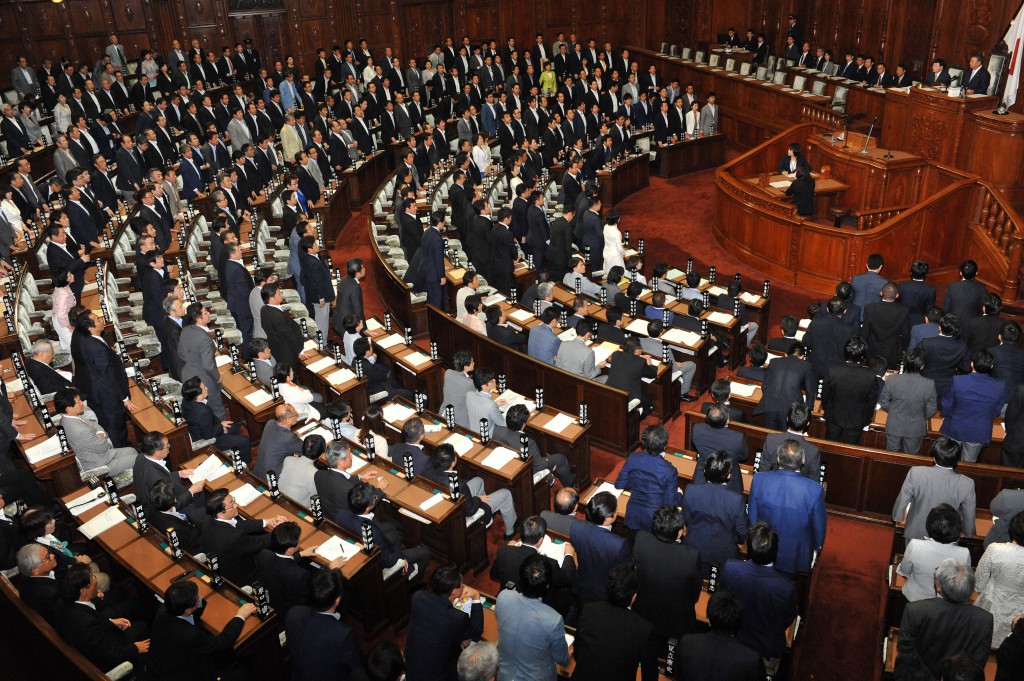
The members of the Lower House adopt a bill to revise the Agricultural Co-operative Society Law by a majority at its plenary session on Tuesday, June 30.
A bill to revise the Agricultural Co-operative Society Law submitted by the government was passed in the Diet’s Lower House on Tuesday, June 30, and the Upper House is expected to start deliberating the bill in early July.
The government says the main focus of the bill is to increase farmers’ income, but fails to explain exactly how. There still remain concerns over possible triggers to restrict non-farmer members’ use of primary agricultural co-ops (JAs)’ services in the future, indicating the need for thorough deliberation in the Upper House.
The bill was passed in the Lower House plenary session by a majority, with support from the Liberal Democratic Party, Ishin no To (Japan Innovation Party), Komeito and Jisedai no To (Party for Future Generations), along with other bills to revise the selection system of members of municipal agricultural committees dealing with farmland transactions and to relax conditions for establishing agricultural production corporations. Democratic Party of Japan, the Japanese Communist Party, the People’s Life Party & Taro Yamamoto and Friends and Social Democratic Party opposed the bill. The bill, which requires the JA group to go through a historic change, has reached a halfway point in becoming a law.
The bill states as the objectives of primary JAs’ businesses that primary JAs should “give due consideration to expansion of farmers’ income.” It requires that more than half of primary JAs’ directors be certified farmers or professionals of farm product sales, as well as stating that JAs’ auditing will be conducted by certified public accountants and the Central Union of Agricultural Co-operatives (JA-Zenchu) will be turned into a general incorporated association. In response to a request by Ishin no To, the bill has a clause which calls on the government to thoroughly publicize the contents of the reform under the revised law.
The bill was deliberated for more than 20 hours in the Lower House since mid-May, but experts say concerns remain, including the possibility of the revised law leading to the restriction of non-farmer members’ use of JAs’ services.
Some opposition parties, as well as experts and JA officials invited to speak at the Lower House committee deliberations, asked that the phrase “give due consideration to expansion of farmers’ income” be left out from the bill. They claimed that it could change the nature of primary JAs to become too much like a craft union for farmers, inciting moves toward restricting use by non-farmer members.
Although the ruling bloc refused to change the phrases in the bill, the Lower House agricultural committee responded to such concerns by adopting a supplementary resolution together with the bill to define JAs as “an important infrastructure for communities.” However, the resolution is not legally binding, and it is unclear how much influence it will have to hamper attempts to restrict non-farmer members’ use of JAs.
(July 1, 2015)

